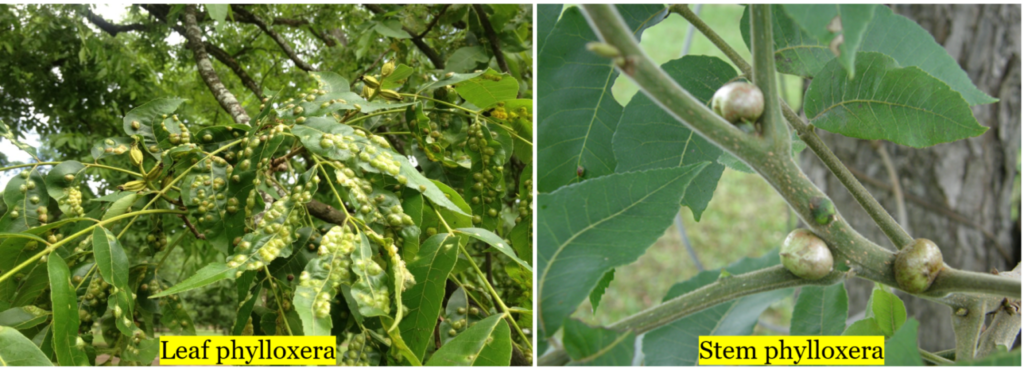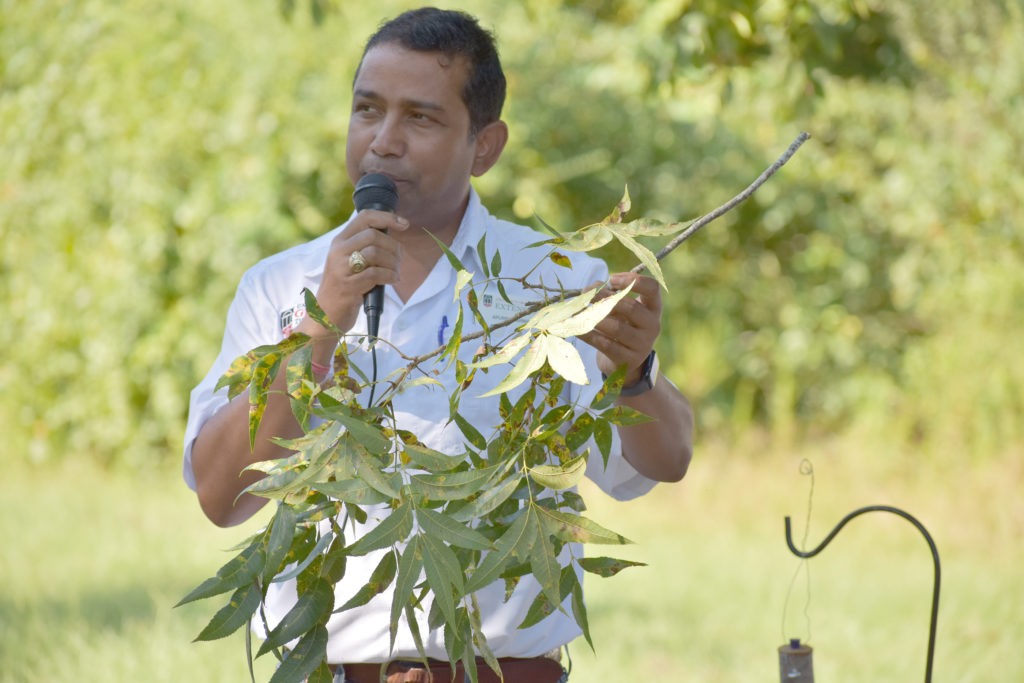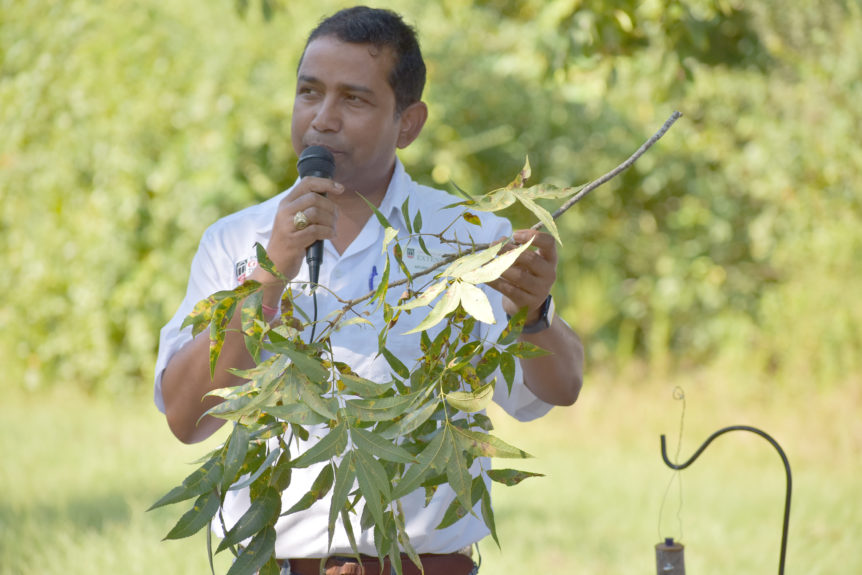
By Clint Thompson
Foliar insecticide applications are essential for pecan producers hoping to control pecan phylloxera, an insect pest in the Southeast.
Apurba Barman, University of Georgia (UGA) Extension pecan entomologist, discussed the insect during the recent Georgia Pecan Growers Association Fall Field Day at the UGA Ponder Farm in Tifton, Georgia. He stressed that foliar applications are most effective against the pest.

“Definitely phylloxera, based on our observations where we see them on the small twigs, that’s where we see the greatest number. Removing those twigs through hedging is going to be helpful. Again, we’re going to have phylloxera on other parts of the tree. Foliar applications are going to be the key management (tactic) for phylloxera,” Barman said.
“Applying them on the soil is not going to be helpful since trees don’t take up a lot of material during that time of the year.”
Timing is also important. Barman noted that insecticides, such as imidacloprid, following budbreak can reduce phylloxera impacts. Barman noted that in research during the 2024 and 2025 seasons, he applied different applications of imidacloprid and Exirel. Both significantly reduced the phylloxera attack compared to the untreated leaves.
However, if the insecticide applications are delayed, phylloxera attacks can lead to gall formation on the leaves.










